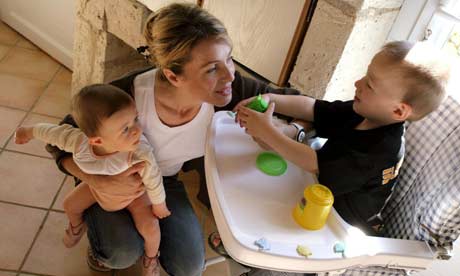Becoming a parent is a major event in anyone's life. If a mom and dad have normal maternal and paternal instincts, the tiny new human being will have priority rights on the hearts, the attention, and purse strings of both parents for at least the next twenty-one years.
Sometimes it happens that a baby is born out of wedlock, to a couple who were "in lust" rather than "in love". That child will probably grow up in a single-parent family. The custodial parent will want to date again when the baby is no longer a newborn.
The other parent, in most cases, shares the responsibility for supporting the child financially and with at least, an occasional visit, until that child is an adult. This non-custodial parent will also return to the dating scene.
Today, about 50% of marriages in North America end in divorce. The result of these tragic splits is that there are thousands of single parents, some young and others not so young, who find themselves back in the dating game.
However, this time is significantly different from the carefree dating they did in their teens or early twenties. This time they have baggage- one or more dependent children to whom they are inexorably bound by chains of love, duty and legality. Obviously, anyone the parent dates should be informed immediately about their true circumstances.
How should you break the news? The best way is to be brutally honest before the date even takes place. "I'd like to spend time getting to know you better, but you should be aware that I am the parent of three little girls whom I love dearly. If this is not an obstacle, how about a going to a movie Saturday night?"
This places the ball squarely in your prospective date's court. He or she is free to explain that children are not in their plans for the future , or alternately, affirm that they love kids and can't wait to meet yours.
If you're new to the dating scene, and lack the courage to confront a potential date with the raw reality, ask that they call you at home at a certain time to confirm the arrangements. Be sure one of the children answers the call. The child will likely turn in your direction and bellow. "Mommm...eee!" or "Dadd...eee!" That should do the trick.
If your potential date is still there when you pick up the receiver, you will have no choice but to explain the relationship between the child and yourself. This is also the time to mention the child's siblings, if there are any.
If you'd rather not break the news over the phone, request that you be picked up on the evening of the first date. On the front lawn, leave the baby's carriage, toys, bikes, and whatever else your children use outdoors on a typical afternoon.
If your date gets as far as the front door, ask him or her in for a coffee and say there are a few things you need to explain before you go. Have a baby-sitter on stand-by in case the newcomer takes everything in stride and still wants to go on the date.
Just as your children are a pivotal part of your life, they must also become important to anyone who wishes to share your life in any significant way . Anyone who is not willing to accept your children as part of a package deal, need not waste time or money in trying to further a relationship.
As a parent, it is your duty to disclose the truth about your situation as soon as you possibly can. If a potential date cannot accept your children, he or she is not the soul-mate you have been waiting for. They need to move on and make way for a superior candidate.







